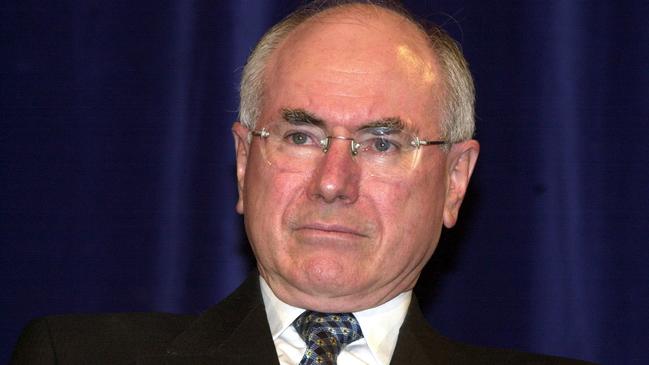Cabinet archives: Origins of offshore detention laid bare
The Howard government was confronted with a growing number of frustrated asylum-seekers in immigration detention in the year 2000.

The Howard government was confronted with a growing number of frustrated asylum-seekers in immigration detention in the year 2000, as it considered funding a processing centre in Indonesia and began moving towards offshore detention.
In a bid to stop mass escapes after detainees broke out of the Woomera, Curtin and Port Hedland detention centres, the Coalition considered new character checks for unauthorised boat arrivals and proposals for tougher sanctions on those in detention who engaged in inappropriate behaviour.
Cabinet records released by the National Archives on Friday show then immigration minister Philip Ruddock suggested the maximum penalty for escape from immigration detention be increased to five years and a new offence to manufacture, possess, use or distribute weapons be created. A controversial proposal to conduct strip searches of detainees without warrant was rejected by the Department of Prime Minister and Cabinet, which said it would only support the power if an appropriately qualified and authorised officer did the searches with consent or after obtaining a warrant.
“It is likely that at least some non-government organisations with interests in migration, and in particular those opposed to the detention of asylum-seekers, will characterise the proposals as an over-reaction,” a cabinet paper notes. “The non-warrant strip-search power is likely to be a particular target of such criticism.”
A cabinet minute acknowledged the main reason for detention centre breakouts “was frustration over the perceived delay in issuing protection visas”.
Though the number of asylum-seekers arriving by boat between January and October in 2000 was lower than the same period a year earlier, there were still 1870 people held in six immigration detention centres at the end of October and fears within the government that large numbers could arrive over summer.
In August 2000, cabinet agreed that when Indonesia put a proposal to the International Organisation for Migration for a “processing and holding centre”, Mr Ruddock should negotiate on Australia’s support.
“Notwithstanding Indonesia’s co-operation (to combat people smuggling and illegal immigration), the interception and detention arrangements remain fragile,” the cabinet papers say. “The establishment of a processing and holding centre in Indonesia would send a positive signal of our support to Indonesia but consideration would need to be given to a number of risks.”




To join the conversation, please log in. Don't have an account? Register
Join the conversation, you are commenting as Logout